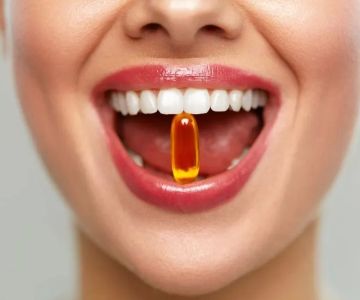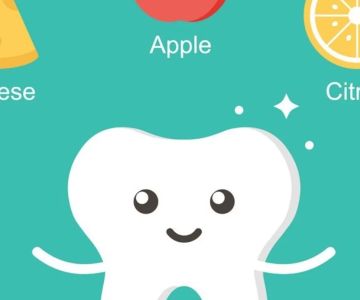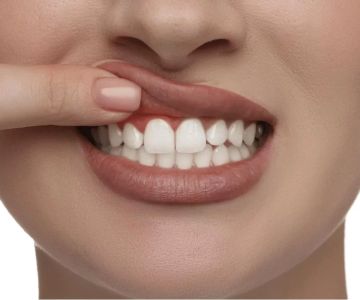How Does Your Diet Affect Your Oral Health?
Did you know that what you eat has a significant impact on your oral health? Many people believe that oral hygiene is all about brushing and flossing, but your diet plays an equally crucial role in maintaining healthy teeth and gums. In this article, we explore how your diet affects your oral health, what foods to eat for better teeth, and how to avoid those that can cause damage.
1. The Link Between Diet and Oral Health
Your diet directly affects your oral health in various ways. It influences the strength of your teeth, the health of your gums, and the overall appearance of your smile. The food you consume can either promote healthy teeth and gums or contribute to issues like tooth decay, gum disease, and bad breath. To understand this connection better, let's look at how different types of food impact your oral health.
2. The Role of Sugar in Tooth Decay
Sugar is one of the biggest culprits when it comes to dental problems. When you consume sugary foods, they interact with the bacteria in your mouth to produce acid. This acid attacks the enamel on your teeth, leading to tooth decay. Over time, frequent sugar consumption can result in cavities, gum disease, and other oral health issues.
Foods and drinks high in sugar include:
- Sodas and sugary drinks
- Candy and chocolate
- Cakes and cookies
- Fruit juices with added sugars
To protect your teeth, it's essential to limit your intake of sugary foods and beverages. Opt for natural sugars found in whole fruits, which are less harmful to your teeth, and remember to brush your teeth after consuming sugar.
3. Foods That Promote Healthy Teeth and Gums
On the other hand, a well-balanced diet rich in certain nutrients can have a positive effect on your oral health. Here are some foods that are good for your teeth and gums:
3.1 Dairy Products
Milk, cheese, and yogurt are excellent sources of calcium and phosphate, both of which are essential for strengthening tooth enamel. Calcium helps to remineralize and protect your teeth from damage, while phosphate supports the rebuilding of enamel. Regular consumption of dairy products can contribute to stronger, healthier teeth.
3.2 Leafy Greens
Leafy greens such as spinach, kale, and lettuce are packed with vitamins and minerals that promote oral health. They are high in calcium, which helps strengthen teeth, and also contain folic acid, which is beneficial for gum health. Additionally, the crunchy texture of leafy greens helps to clean your teeth naturally as you chew.
3.3 Crunchy Fruits and Vegetables
Fruits and vegetables like apples, carrots, and celery are not only nutritious but also help to stimulate saliva production. Saliva is crucial for neutralizing acids in the mouth and washing away food particles, which helps prevent tooth decay. The act of chewing crunchy fruits and vegetables also massages your gums, promoting better gum health.
3.4 Nuts and Seeds
Nuts and seeds, such as almonds, walnuts, and sunflower seeds, are rich in healthy fats and essential minerals like magnesium. These nutrients help maintain strong teeth and gums. Nuts also have a natural abrasive texture that can help remove plaque buildup from your teeth when you chew them.
3.5 Green Tea
Green tea is known for its health benefits, including its ability to fight bacteria in the mouth. It contains catechins, which are antioxidants that help reduce inflammation in the gums and inhibit the growth of harmful bacteria. Drinking green tea regularly can help reduce the risk of gum disease and promote overall oral health.
4. The Importance of Hydration for Oral Health
Drinking plenty of water is essential for maintaining good oral health. Water helps rinse away food particles, neutralizes acids in the mouth, and supports the production of saliva. Saliva is crucial for keeping your mouth clean and preventing dry mouth, which can lead to cavities and bad breath. Drinking water throughout the day, especially after meals, can help maintain a clean and healthy mouth.
5. The Impact of Acidic Foods on Your Teeth
While some fruits and vegetables are beneficial for oral health, others, like citrus fruits (lemons, oranges, grapefruits), can be damaging to your teeth if consumed in excess. Acidic foods can wear down tooth enamel over time, leading to increased sensitivity and a higher risk of cavities. If you do enjoy acidic foods, try to consume them in moderation and rinse your mouth with water afterward to neutralize the acid.
6. How to Make Better Food Choices for Oral Health
Now that you know how your diet can impact your oral health, here are some tips to help you make better food choices:
6.1 Eat a Balanced Diet
A balanced diet is key to maintaining both your overall health and your oral health. Include a variety of foods from all food groups, focusing on whole grains, lean proteins, healthy fats, and plenty of fruits and vegetables. Avoid excessive amounts of sugar and processed foods, which can contribute to oral health problems.
6.2 Limit Snacking Between Meals
Frequent snacking throughout the day can expose your teeth to constant acid attacks, especially if you snack on sugary or starchy foods. Try to limit snacking between meals, and if you do need a snack, choose healthier options like fruits, vegetables, or nuts that are less likely to harm your teeth.
6.3 Brush and Floss After Meals
Good oral hygiene is essential to complement a healthy diet. Brush your teeth at least twice a day, and floss once a day to remove food particles and plaque from between your teeth. After consuming acidic or sugary foods, it's especially important to brush your teeth to prevent tooth decay.
7. The Role of Dental Checkups in Maintaining Oral Health
Regular dental checkups are essential for maintaining good oral health. During these visits, your dentist will clean your teeth professionally, check for signs of cavities, gum disease, or other issues, and offer personalized advice on how to improve your oral hygiene routine. Regular visits also allow your dentist to identify any dietary-related issues affecting your teeth and gums before they become serious problems.
For more tips on improving your oral health and making the best food choices for your teeth, visit Dentistry Toothtruth, where you can find expert recommendations and services tailored to your needs.







 Family Holland Dental4.0 (236 review)
Family Holland Dental4.0 (236 review) Dr. Jeff Loftus, DDS3.0 (3 review)
Dr. Jeff Loftus, DDS3.0 (3 review) Bright Valley Dental4.0 (97 review)
Bright Valley Dental4.0 (97 review) Access Dental, Dentures & Implants4.0 (426 review)
Access Dental, Dentures & Implants4.0 (426 review) Tri City Endodontics5.0 (4 review)
Tri City Endodontics5.0 (4 review) Tascha Z. Fuchs, DDS5.0 (63 review)
Tascha Z. Fuchs, DDS5.0 (63 review) The Importance of Oral Health Education During Pregnancy for a Healthy Pregnancy
The Importance of Oral Health Education During Pregnancy for a Healthy Pregnancy Best Tips for Brushing Your Teeth Properly for Healthy Gums: Essential Techniques for Oral Health
Best Tips for Brushing Your Teeth Properly for Healthy Gums: Essential Techniques for Oral Health Why Skipping Dental Checkups Can Lead to Bigger Oral Health Problems
Why Skipping Dental Checkups Can Lead to Bigger Oral Health Problems Advantages of Porcelain Dental Restorations
Advantages of Porcelain Dental Restorations How Can Diabetes Cause Tooth and Gum Problems? Preventing and Managing Oral Health Issues
How Can Diabetes Cause Tooth and Gum Problems? Preventing and Managing Oral Health Issues Healthy Habits for Promoting Good Oral Health and Hygiene: Tips for a Healthy Smile
Healthy Habits for Promoting Good Oral Health and Hygiene: Tips for a Healthy Smile